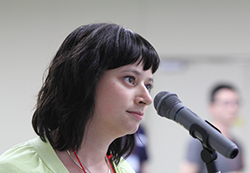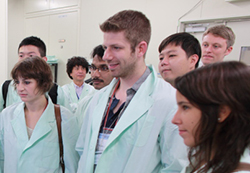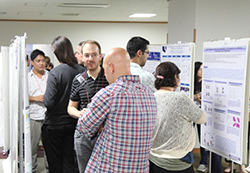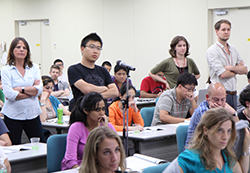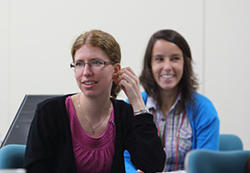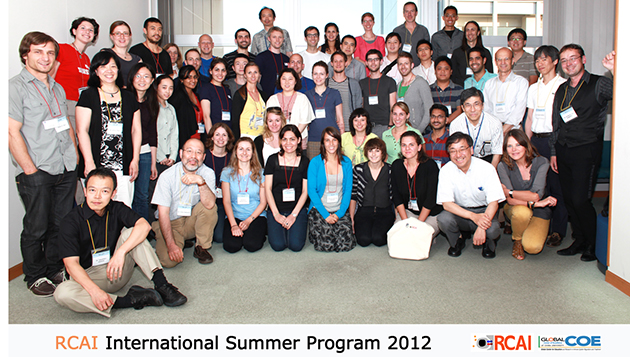The RISP lectures at RCAI were quite diverse. Topics included lymphocyte development and differentiation, the function of microRNAs in these processes, transcriptional regulatory networks, immunoreceptor signaling, mucosal immunity, and the inflamasome. Because of their breadth, these lectures provided an expansive overview of the immune system, with experimental approaches ranging from sophisticated imaging in cancer and in the germinal center reaction, to whole animal and ghumanizedh mouse analyses. The invited speakers incorporated introductory material as well as recent highlights from their own research into their talks. The research interests of the participants were similarly varied, making for a unique opportunity for cross-fertilization among immunology subdisciplines during the oral and poster presentations and in more informal settings. The question periods following talks by the invited lecturers as well as the students were spirited and stimulating. Awards for best RISP posters were presented at a farewell party held at the close of the RCAI-JSI meeting. All of the participants expressed their appreciation to the organizers for inviting them to RISP, and some of them established collaborations as a result of the RISP that are likely to be long-lasting.
The RISP 2012 students had a full schedule, but had some opportunities to explore the Yokohama/Tokyo area and many of them also visited nearby Kamakura. RISP provided an exceptional experience from both scientific and cultural perspectives. In a survey completed after the school, the participants unanimously agreed that they would recommend the program to colleagues. Half indicated that they would consider a postdoctoral position at RIKEN and nearly all would consider returning to RCAI for a short-term period of collaborative research. The success of this unique program was due to the efforts of the Organizing Committee, chaired by Dr. Kurosaki , and the RISP Secretariat, Mss. Haraguchi, Iyama, Nomura, Yoshioka and Mr. Fukushima who kept the entire operation running smoothly, as well as to the efforts of the outstanding participants. Planning is already underway for RISP 2013.

